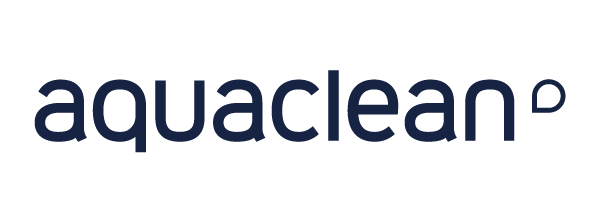Technology
applied
R+D+i projects
at aquaclean®
Research, Development and Innovation
For the aquaclean group, innovation and development are an important part of the company’s continuous growth, adopting the latest technologies in the sector to face an increasingly demanding and competitive market. Thanks to aquaclean group’s strong investment in this field, the company has developed aquaclean technology, a revolutionary technology specialized in fabrics for sofa upholstery that simply removes all types of stains from our fabrics with water in three easy steps.
Thanks to the effort and investment in R&D&I, aquaclean group has developed a series of technologies and advances in the textile sector that clearly differentiate it from its competitors.
Our Projects
aquaclean® technology
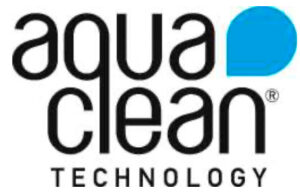
Safe Front Technology
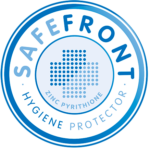
Stain Free Technology
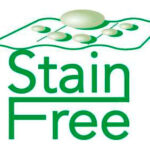
ERDF IDI-20150291
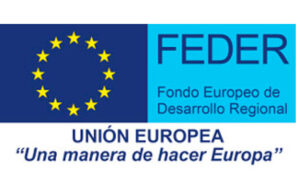
Energy saving and efficiency project in industry
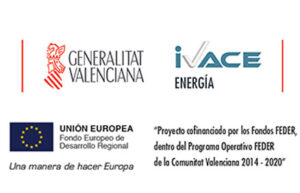
Energy improvement project for the company's lighting

FEDER Funds ICEX AID / MOOD FAIR 2017
Antecuir
Antecuir has participated in the Fair of the Textile-Home sector MOOD 2017 held in Brussels, and has had the support of ICEX, as well as the co-financing of European FEDER funds, having contributed according to the measure of the same, to the economic growth of this company, its region and Spain as a whole.
Interfabrics
Interfabrics has participated in the Fair of the Textile-Home sector MOOD 2017 held in Brussels, and has had the support of ICEX, as well as the co-financing of European FEDER funds, having contributed according to the measure of the same, to the economic growth of this company, its region and Spain as a whole.
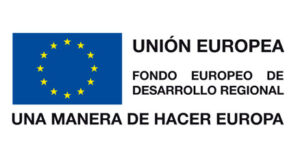
CDTI INNOVATION DIRECT LINE Project
Incorporation of new technology with the latest advances in Texturizing in the company.
The incorporation of a new high-performance air texturizing machine has been a CDTI project. In this innovation project that began in August 2016 and ended in October 2017, we have acquired a texturizing machine that allows us to give volume and opacity, among other properties, to the yarns processed at INTERFABRICS, in order to multiply the possibilities of yarn processing (colors, thickness, knots, opacity, etc.). Thanks to the acquisition of this new machine we have expanded our internal services, so we can now develop and manufacture high quality yarns internally and with new innovations, since we lacked an internal spinning process, thus obtaining multiple options, possibilities and effects in terms of: combination of colors, variation of thickness, different number of knots, etc. offering in the final fabrics the quality standards that our company demands to the articles.
The new machine that has been acquired allows the company to develop new R&D developments internally. With this project, the company has differentiated itself from the competition, since this type of machine is totally innovative and there is currently no national competitor that has it in its facilities. The implementation of the new machine has been strategically important for the future of the company, since it will allow us to continue positioning ourselves in the market and to be a leading company in our field of activity.
The result has been a success, since the company has innovated and expanded its technology and processes, and now has a new process, without having to resort externally to the purchase of innovative yarns, to obtain high-value fabrics.

LEARNINGTEX
Lack of workplace experience and skills and competencies is one of the factors contributing to the skills gap in the European Union today. While 5.6 million young people in the EU suffer the consequences of unemployment, 36% of companies acknowledge that it is difficult to find candidates with the skills they need. Something is clearly wrong. The need to identify, adapt and adopt practices that can address this skills gap is urgent. This shortage is most noticeable in the textile sector where companies require more technical personnel with up-to-date skills and knowledge, enabling them to use and manipulate high-tech machines and equipment for textile manufacturing processes.
With this mismatch in the labor market, five institutions from Austria (BEST), Spain (AITEX, ANTECUIR and UPV) and Portugal (CITEVE) have launched the LEARNINGTEX Project. After an evaluation of the textile sector in the different countries of the consortium and analysis of the results, the companies identified two weak areas: fabrics and new quality control processes. European textile companies can only compete on the world market for quality products and generate value-added products. Competing on price against third countries is impossible. The only way is to compete on quality and design against low cost and low quality products manufactured in emerging countries outside Europe.
The LEARNINGTEX project, funded by the Erasmus+ program of the European Commission, is in its second and final year. The project in which ANTECUIR participates aims to develop a MOOC (Massive Open Online Course) based on OERs (Open Educational Resources) on advanced technologies for textile quality control, not only for obsolete textile employees, but also for inexperienced workers who have just finished their studies. The course is oriented to textile employees and students interested in knowledge about fabrics, machinery and the application of new technologies to improve quality control processes and reduce costs.
The different educational contents for the MOOC are currently being developed and will be validated soon by ANTECUIR and the rest of the partners.
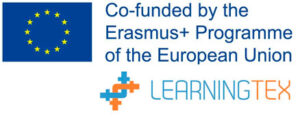
CDTI INNOVATION DIRECT LINE Project
Incorporation of new stenter for the implementation of a new line of innovative finishes.
The incorporation of a new stenter and its auxiliary equipment has been a CDTI project This innovation project that began in February 2017 and ended in March 2018, has consisted of the implementation of a stenter and its auxiliary equipment to be able to apply new properties and innovations to the fabrics and provide them with the highest quality with the ultimate goal of becoming a vertical company that does not depend on external processes of the group, which is favoring the competitiveness of the company, in terms of an improvement in service and an improvement in final quality, by being able to control the finishes to be applied.
Thanks to this investment in the new equipment and process, which until now did not exist in the company, it will experience a great technical and commercial advance, since INTERFABRICS no longer has to resort to the rest of the companies in the group, but is able to innovate the finishes and ensure that they are of high quality, controlling each of the variables. One of the motivations behind the new investment has been the diversification of its products towards new fabrics with more innovative finishes, which in turn is favoring the value chain of the textile sector. The implementation of the new machine has been strategically important for the future of the company, as it will allow us to continue positioning ourselves in the market and to be a leading company in our field.
The result has been a success, as the company has innovated and expanded its technology and processes, and now has a new process, without having to resort to group companies, to obtain high value-added fabrics.

LEARNINGTEX
ANTECUIR is participating in the LEARNINGTEX project whose MOOC will be launched in October as an open online course on textile quality control. After completing the creation of the digital contents, the LEARNINGTEX project is focusing its efforts on the validation and finalization of the OER (Open Educational Resources) that will shape the MOOC (Massive Open Online Course) on textile quality control through the use of advanced technologies.
In recent months the OERs have been presented to different audiences and target groups in the different countries that make up the consortium. Participants have had the opportunity to collaborate in the project by evaluating the acquisition of knowledge in the area through first-hand visualization of the resources created.
During the months of July and August, the OERs have been finalized and will be hosted on the MOOC platform in order to be presented to the public in September and October and made available to interested parties.
The first presentation will take place in Alcoy at the Campus of the Universitat Politècnica de València, followed by other presentations in the other countries of the consortium.
This project has been funded with support from the European Commission. This publication (communication) reflects the views only of the author. The Commission cannot be held responsible for any use which may be made of the information contained therein. 
COLOMBIATEX 2019
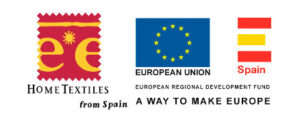
Technology applied to the textile sector with innovation
Research project on a new technology for the production of simile-chenille yarn from rpet recycled fibers.
CONSOLIDATION OF THE BUSINESS VALUE CHAIN
The company INTERFABRICS, S.L., is carrying out a project with the support of the Valencian Innovation Agency (AVI) within the action “Consolidation of the business value chain”.
The CHENITEX NON PLASTICS project aims to research an alternative technological process to develop a new chenille-like yarn from recycled material. This innovative proposal in terms of process and material should also solve one of the main problems of traditional chenille yarn, which is the emission of microfibers during its manufacture, handling and weaving, as well as throughout its useful life.
Throughout the phases of this project, through the development of the process it is intended to create and optimize a new type of yarn that is more sustainable due to the use of recycled materials and that can contribute to minimize the environmental impact by preventing the remains emitted from accumulating in the wastewater of textile industries and presenting a pollution problem in our waters and in the ecosystem in general.
In order to achieve the desired objective, a work plan has been designed in which, firstly, the use of a substitute filament of recycled origin such as recycled polyester yarn (rPET) will be studied and the functional requirements it must meet will be analyzed.
Next, we intend to carry out an investigation of yarn processing technologies to explore new ways of development using AITEX resources that provide the material with the expected characteristics and finish, and constitute an advance to the current state of the art. To this end, we will start with ATY (Taslan®) air jet texturizing and link it with the hollow spindle spinning process to obtain chenille effect yarns that do not present problems of emissions to the environment.
In this way, the circular economy model is promoted within the regional textile sector and the use of more sustainable and recyclable materials is implemented, resulting in products with high added value and causing a favorable impact on the value chain.
INTERFABRICS S.L.
Action: Consolidation of the business value chain
Project: Investigation of a new technology for the production of simile-chenille yarn from recycled fibers
File: INNCAD/2022/165
Grant: 51.697,10€.

Neo-Recycling
The NEO-RECYCLING project, funded by the Center for the Development of Industrial Technology (CDTI) and which has completed its first milestone in August 2023, has as its main objective to research and develop products and technologies with low environmental impact with application in the manufacturing process of consumer goods such as new yarns for apparel/textile-home, upholstery textiles, footwear, mattresses/toppers, composites, rubber/elastomer composites and plastic material parts, based on new circular economy models.
To this end, the project is contemplating the following general technical objectives and main lines of work:
– Research and develop new materials derived from renewable sources.
– To reduce the environmental impact through new production processes, making eco-design the central axis on which these pivot.
– Develop and validate more environmentally friendly processing technologies with a reduced carbon and water footprint.
– To study processes for the revalorization of waste from different sources (pre- and post-consumer) that generate recycled raw material of sufficient quality to be incorporated into production processes at the intra- and inter-sectoral level, thus promoting the concept of circular economy.
– To update knowledge of the different regulations applicable to waste management and its revaluation and use.
– To develop new product prototypes, characterize their performance and validate them at a technical and economic level. To implement tools for the objective evaluation of the sustainable nature of the solution obtained, mainly through LCA, so that the companies participating in the project can increase their knowledge of techniques such as the above and in eco-design processes, in order to offer their customers goods, processes and services with real sustainable solutions and with a measurable reduction in environmental impact.
Derived from the results of the project, quantitatively it is intended to achieve increases of 15-20% in aspects such as the amount of renewable/recycled material of a specific product/packaging, and reductions of 15-20% in the weight of raw material used, in the water used in manufacturing, in the pollutant load of such water, in the weight of waste generated or in the kg of CO2 eq. emitted by a particular process. emitted by a specific process.
The project is scheduled to last 42 months, from March 2022 to August 2025, and is divided into 3 milestones. The NEO-RECYCLING consortium, led by INTERFABRICS S.L., is composed of seven companies from manufacturing sectors such as textiles (HILATURAS FERRE S.A., CREACIONES JEAN PAUL S.L. and the project leader itself), footwear (THE ART COMPANY B&S S.A.), the rest sector (ECUS SLEEP S.L.), the plastics sector (PLÁSTICOS ERUM S.L.) and the rubber industry (MCE MEZCLAS CAUCHO S.A.). Additionally, three Research Organizations are taking part in this initiative: the Textile Industry Research Association (AITEX), the Miguel Hernández University of Elche (UHM) and the Polytechnic University of Valencia (UPV).
NEO-RECYCLING has a budget of almost 5.39M € and a CDTI contribution of just over 4.58M €.

Recovery, Transformation and Resiliency Plan
Project under the incentive program linked to self-consumption and storage, with renewable energy sources, as well as the implementation of renewable thermal systems in the residential sector within the framework of the Recovery, Transformation and Resilience Plan, financed by the European Union – NextGenerationEU#PlanDeRecuperación.
Beneficiary: TEXTILES PASCUAL S.A.
Component (C7:l1): DEVELOPMENT OF RENEWABLE ENERGY INTEGRATION
Total investment: 162,094.90€.
Amount of aid: 40,523.72€.
Power (KW): 235
Royal Decree 477/2021
Antecuir
Project under the incentive program linked to self-consumption and storage, with renewable energy sources, as well as the implementation of renewable thermal systems in the residential sector within the framework of the Recovery, Transformation and Resilience Plan, financed by the European Union – NextGenerationEU#PlanDeRecuperación.
Beneficiary: ANTECUIR S.L.
Component (C7:l1): DEVELOPMENT OF RENEWABLE ENERGY INTEGRATION
Total investment: 248,802.62€.
Amount of aid: 62,200.65€.
Power (KW): 418
Royal Decree 477/2021

Consolidation of the business value chain
The company INTERFABRICS, S.L. has recently carried out a project with the support of the Valencian Innovation Agency (AVI) within the action “Consolidation of the business value chain” and with the collaboration of AITEX as a technological partner responsible for providing knowledge, dissemination and scientific-technological relevance to the results obtained.
In this project, called CHENITEX NON PLASTICS, new yarns and fabrics similar to chenille (with a look and feel similar to conventional chenille products, but with lower microfiber emission) have been developed from recycled material and with competitive mechanical properties. The added value of the products developed in this project lies in their sustainable character. In recent years, the importance of the concept of “sustainability” is increasing exponentially due to governmental requirements regarding the reduction of environmental impact and the growing consumer interest in purchasing sustainable products. On the one hand, the use of microfibers minimizes the emission of microfibers during their production processes and throughout their useful life, which means a lower environmental impact due to the reduction of the emission of waste in the wastewater of textile industries and during the washing of garments by the consumer. Moreover, the use of recycled polyester as a raw material reduces the consumption of non-renewable raw materials and improves the carbon footprint of the final product.
As a result of the project, the following products have been developed: recycled polyester multifilament yarns with different characteristics and improved tenacity values with respect to those existing in the market (going from 2.5 g/den to 3.5 g/den tenacity); recycled polyester simile-chenille texturized yarns (ATY) with different characteristics and compositions; recycled polyester simile-chenille hollow spindle yarns with different characteristics and compositions (some of them have been vaporized to improve their feel and increase their volume); recycled polyester simile-chenille twisted yarns with different characteristics and compositions (ATY and Hollow Spindle); recycled polyester simile-chenille fabrics with different characteristics and compositions able to substitute in touch and regularity the existing chenille fabrics in the market (to ensure the good finishing of the samples, a “RAME” finishing process with “AQUACLEAN” application has been applied). Finally, a validation of the processes and products that make up the project has been carried out at different levels to quantify the degree of achievement of the objectives initially set, concluding that the emission of microfibers has been reduced, mainly during the manufacturing and finishing processes of the new recycled polyester chenille-like products developed.
Therefore, this project promotes the implementation of more sustainable materials, mainly in the Textile-Home subsector, offering as a result products with high added value that will have a favorable impact on the textile value chain of the Valencian Community.
Company: INTERFARICS, S.L.
Project Title: INVESTIGATION OF A NEW TECHNOLOGY FOR THE PRODUCTION OF SYMIL-CHENILE YARN FROM RECYCLED RPET FIBERS OF ORIGIN
File No: INNCAD/2022/165
Grant: 51,697.10 €.

